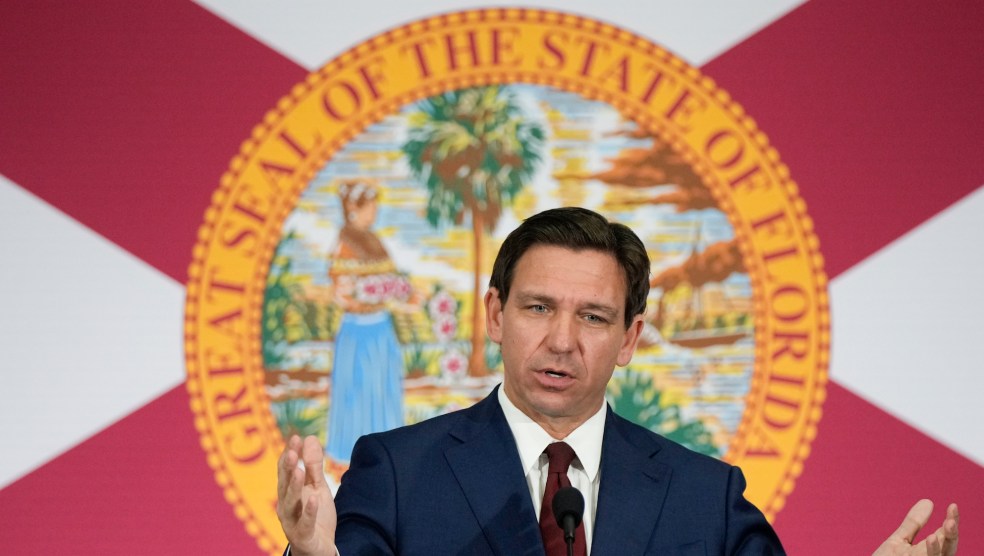
Florida Gov. Ron DeSantis speaks during a news conference in Miami in 2023. Rebecca Blackwell/AP
Hours before announcing his 2024 campaign for the presidency on Wednesday, Florida Gov. Ron DeSantis signed a law allowing him to continue to serve as governor while he pursues the GOP presidential nomination. While that was the headline, the new law contains a series of provisions making it harder to vote in the state, including new restrictions on mail-in ballots, efforts to make it easier to purge voting rolls, and limitations on third-party voter registration groups that could gut community registration drives.
As a result, DeSantis is facing three new federal lawsuits from organizations including the NAACP, League of Women Voters, and the Hispanic Federation, which argue that the new restrictions violate the First and Fourteenth Amendments to the Constitution, including the right to free speech and association, and fundamental protections of the right to vote.
Voting rights groups say the new rules for grassroots voter registration groups are particularly burdensome. According to a summary by Democracy Docket, the new law:
- Requires organizations to reregister for every single election cycle,
- Prohibits prefilled information on registration applications,
- Shortens the amount of time organizations have to return registration applications from 14 days to 10 and increases the fine associated with late delivery,
- Bans noncitizens and individuals with certain felony convictions from handling voter registration applications and imposes fines for each violation of this requirement, and
- Increases the total aggregate fine that an organization can be levied in each calendar year from $50,000 to $250,000.
Voting rights groups told the GOP-controlled legislature before the bill’s final passage that these measures “create an overwhelming chilling effect, and groups will have to decide between risking fines of magnitude they cannot shoulder, or simply cease undertaking voter registration activities altogether.” The lawsuit by the League of Women Voters said the restrictions will have “devastating consequences” that could lead it to “severely curtail” voter registration drives.
The new law is likely to have a disproportionate impact on voters of color, who are five times more likely than white voters to be registered by a third-party group.
And it’s not the first time DeSantis has signed a bill making it harder to vote and targeted communities of color.
In 2019, he signed a law that disenfranchised 774,000 people with past felony convictions who owed fines, fees, or restitution. It gutted a ballot initiative passed by Florida voters in 2018 that was meant to restore voting rights to 1.4 million people with felony convictions.
Two years later, he signed a sweeping bill restricting mail voting, after more Democrats than Republicans cast mail-in ballots in 2020 for the first time in state history. He signed the law during an “exclusive” appearance on Fox & Friends.
A year later, a new Office of Election Crimes and Security created by DeSantis announced the arrest of 20 people on voter fraud charges, many of them Black men with past felony convictions who had been told by the state they were eligible to vote. A number of the charges have already been thrown out in court.
And in an unprecedented move, DeSantis forced his own redistricting plan through the legislature, creating four new US House seats for Republicans and dismantling two districts represented by Black members of Congress.
DeSantis has often proclaimed Florida to be a bastion for freedom under his rule, but as former Democratic State Rep. Sean Shaw told my colleague Pema Levy, “that freedom only applies to people that look like him and that think like him. And if you don’t, then this state is not free at all.”










